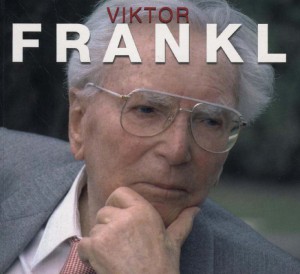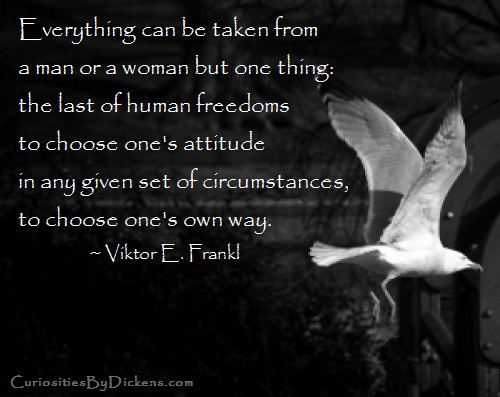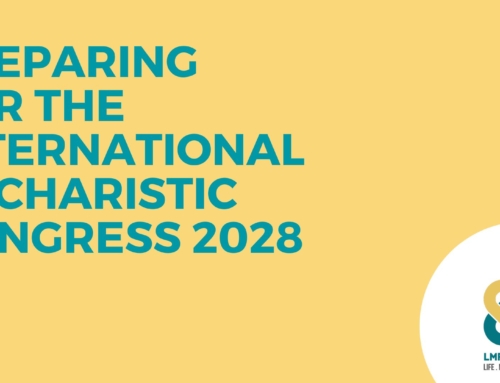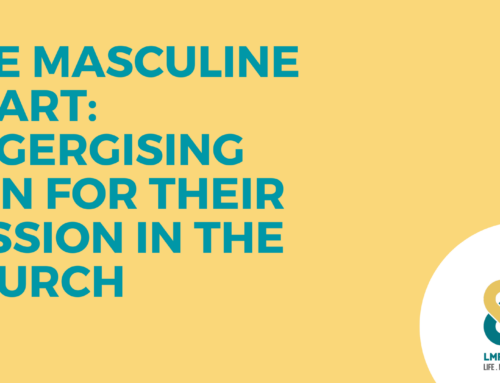 Recently, we came across this video of Viktor Frankl giving a lecture on the Search for Meaning. In it he makes the point, that “if we take man as he is, we make him worse, but if we take him as he should be we make him capable of becoming what he can be”. Pointing out the importance of idealism he states…
Recently, we came across this video of Viktor Frankl giving a lecture on the Search for Meaning. In it he makes the point, that “if we take man as he is, we make him worse, but if we take him as he should be we make him capable of becoming what he can be”. Pointing out the importance of idealism he states…
“If we overestimate him, we promote him to what he really can be”.
You can watch the clip here: Viktor Frankl lecture: Search for Meaning
It’s a powerful principle, especially given Viktor Frankl’s personal story as a holocaust survivor – this is a theory that has been put to the test in the crucible of human depravity.
There are immediate and obvious applications to parenting and teaching… we all know that if we set high expectations, kids tend to rise to them. If our expectations are too low, they tend to slack off once the goal is reached and growth then stops. On the other hand, if we make the expectations unrealistically high, it can have a demotivating effect – kids give up. In the face of unrelenting failure, the human spirit can flee into a self-protective, ‘I don’t care’ mode.
It got us thinking…we wondered if the theory would apply to marriage, and if so, how could it be positively applied?
Certainly if one grows up with poor role models of marriage, such as an experience of serial divorce, the expectations for marriage are likely to be similarly limited. In our Western cultures, we’re seeing more and more young people shun marriage altogether as a result of the divorce culture. As one young woman told our colleague, “My parent’s divorce was so traumatic I would never put my kid through that so it’s better not to go there”. She was shunning not only marriage but child-bearing as well. Tragically, she had no confidence in her ability to form a lasting relationship.
 This wide-spread pessimism about marriage and family has ‘disabled’ many of the younger generation, rendering them powerless to pursue their dreams for their intimate relationships.
This wide-spread pessimism about marriage and family has ‘disabled’ many of the younger generation, rendering them powerless to pursue their dreams for their intimate relationships.
On the other hand, if couples “overestimate” marriage, to use Frankl’s terminology, what typically happens? Firstly, they start out with a lot of positive energy and high ambitions for their marriage. This automatically lifts their chances of forming a life-long stable bond because they will invest more into the relationship. If they can get the positive feedback cycle working, they’ll develop a robust relationship that can cope with the inevitable stresses and set-backs. When they hit a really tough patch, they’ll have a bank of positive memories to draw on and to motivate them to be innovative and persistent in finding solutions to their marital problems.
To illustrate the difference: at a recent talk on the Theology of Marriage, we recounted the magnificent vision in Catholic teaching for married couples – how as a sacrament it reveals the passionate devotion of Jesus’ love for us, his bride. Generally people got it, but there was hesitation – one woman described how her mother had been coerced by her parents to marry her father and though still together it had been a very unhappy marriage as her father was a difficult man. She herself had rebelled against her parents and married outside the Church and was now divorced. She understood the theology of the vision, she just didn’t believe it was realistic. We pointed out that while the joyful romance of those rare couples who are still in love after 20, 30, 50 years is a special inspiration, in another sense the kind of selflessness and commitment her mother demonstrated was equally sacramental in that it testified to the Christ’s faithfulness, even when his bride is broken, selfish, hostile or even adulterous. We need the witness of her parent’s marriage just as much as that of the life-long romance.
It’s a different kind of magnificence with entirely different merits to the beauty of the 50 year romance.
But how do we account for those couples who start out with similar optimism but fall victim to the all-too-common disillusionment and slow decay towards marital breakdown? We contend that this is the result of unrealistic expectations and our hypothesis is that two important dynamics are at play.
One is the false expectation that marriage will be effortless, that the spouses will spontaneously and without conscious planning be able to anticipate and meet each other’s needs throughout the changing landscape of their lives. Somehow, they expect that being in love will excuse them from suffering of any kind. This is a totally unrealistic expectation and shouldn’t be confused with the optimism of which Frankl speaks which refers to developing the very best of ourselves which really only finds full expression in the midst of difficulty. The marriage which doesn’t test the spouses and call them to growth in virtue will ultimately lead to stagnated individuals and a correspondingly calcifying marriage.
The second factor at play is the lack of social support and credible role models who can coach the couple through the inevitable tough times. Relationships are more complex in our generation as we expect so much more from them. We think that because falling in love is so spontaneous that staying in love will be similarly simple. It’s not. More than ever couples need active and targeted education in the relationship game from mentor couples who can walk beside them, having navigated the tribulations of married life themselves.
In our grandparent’s generation, a good husband was one who had a steady and adequate income, who didn’t drink too much or beat his wife. A good wife kept on top of the housework and was fertile. It didn’t require too much thinking or training to fulfil the job description. These days, husbands are expected to be confidants, best friends, capable of excited and joyful participation in both intimate conversation and mindless chatter as well as provide a steady income, be home for dinner with the kids and never lose his temper or express violence in any way. Wives are expected to maintain youthful good looks, work fulltime outside the home while keeping the home and family in immaculate condition, perform like a porn star in bed and make sure she’s not too fertile.
Modern husbands and wives live with a constant sense of failure, stress and disillusionment.
Apathy, whether it be in marriage or in life, is a self-protective strategy. The “I don’t care” attitude is a desperate attempt by the psyche to immunise it against the pain of disillusionment and the humiliation of failure. What we can fail to appreciate is that a life (and a marriage) lived from this perspective is only half-lived; it lacks the passion, the highs and the lows of a fully engaged and free self. Frankl’s theory of idealism tested in the horrors of WWII is a timeless insight that applies equally well to marriage in the twenty-first century and invites couples to embrace the challenges as opportunities to develop their best self.





Nice point at the end about the complexity of modern life in terms of demands on both spouses to achieve perfection across so many areas. It would be fascinating to discover the processes that drive this sense of needing to be perfect. It’s obviously a mix of major sociological, demographic, economic and technological forces as well as cultural forces such as the impact of media formats over several decades. Hard to get off that treadmill though for many couples.
Jonathan – the whole soul-mate myth is largely responsible. It’s a fantasy that is a hugely successful marketing angle and the more it is peddled, the more people come to expect their spouse to fulfill their every need and the more their sense of entitlement gets offended when their spouse doesn’t deliver. Our culture tells us the marriage is meant to be soul mates riding off into the sunset. But just as learning to ride a horse is harder than it looks, so is learning to love selflessly a life-long art and discipline. Thanks for the comment!